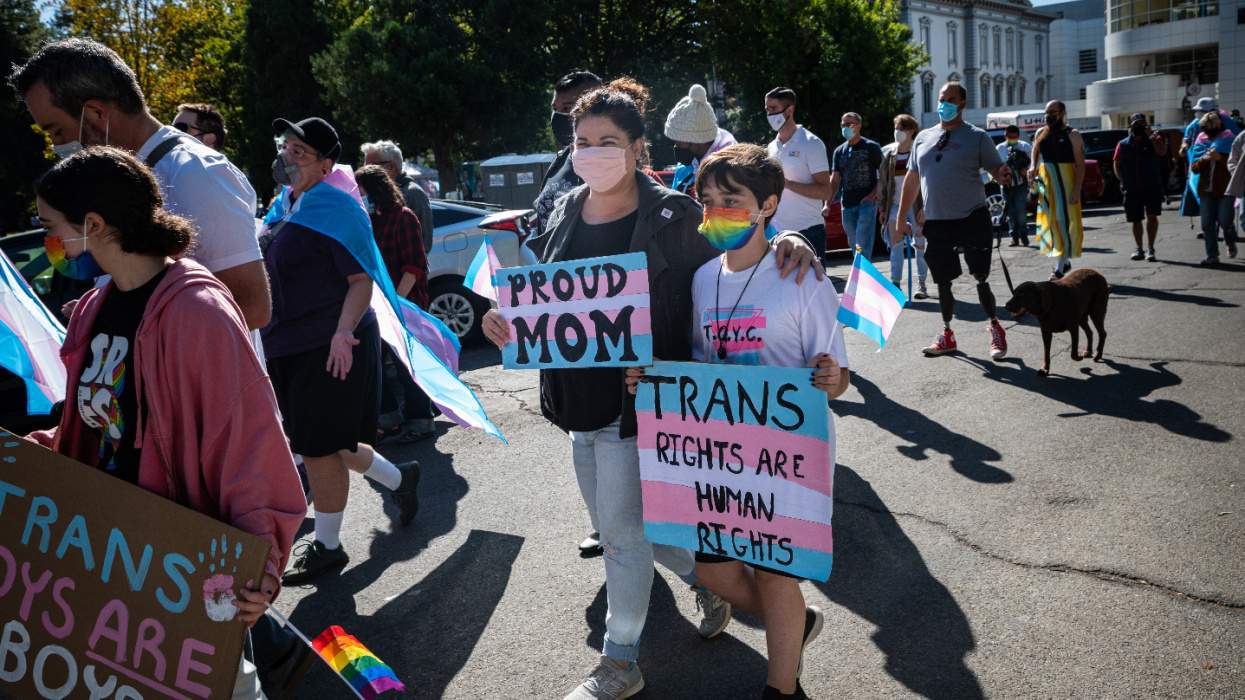The widow of a transgender man received a dose of good news late last week.
After the trans man died after nearly 30 years of marriage, his wife was set to receive the pension benefits owed to her late husband as the result of 40 years of work at a major auto manufacturer. Unfortunately, his plan's administrative board rejected the wife's request after determining that she did not qualify as a surviving spouse as defined by the pension board.
"The Plan defines a Surviving Spouse as the individual who is 'legally married' to the participant at the participant's time of death," a letter from the pension board to the widow reads. "In your claim, you assert that you were [his legal spouse], and therefore are eligible to receive Surviving Spouse benefits."
"After reviewing the available records, the Plan's administrator finds insufficient proof of your status as legally married [to him], primarily because of the gender discrepancies in the records," the letter goes on, later citing the deceased's birth certificate, which listed him as female.
After years of work with the Transgender Legal Defense and Education Fund, the pension administration has reversed their decision, concluding that this man was legally male, and therefore his surviving spouse should be eligible to receive his pension benefits, just as any other heterosexual surviving spouse would be.
"In reviewing your appeal, the Board considered the information submitted with your written appeal, your records, and the relevant Plan provisions," a follow-up letter from plan administrators sent last week reads. "After careful consideration by the Board, your request has been approved. This approval is based on your representation that you [were legally married at the subscriber's time of death]."
"Too often, transgender people find that families they have created are challenged as 'void' and 'invalid,'" the Transgender Legal Defense and Education Fund wrote in a blog post. "Hard-working people who have played by the rules and simply want to be treated fairly find that their plans and dreams are upended... We will continue to speak out and take action in cases like this as we move towards a society that treats transgender people equally in all aspects of life."
The story of a surviving spouse emerging victorious in her quest to receive equal treatment upon her husband's death is both a sign of how much has changed in the realm of transgender rights in the past few decades, as well as a sad reminder that these fights continue to exist in the first place.
Last weekend, The Advocate reported on the death of Christie Lee Van De Putte, a trans woman who came to prominence as the plaintiff in the 1999 case Littleton v. Prange, a wrongful death lawsuit filed against Van De Putte's late husband's doctor. In the Van De Putte case, though a $2 million settlement had been reached, a number of courts declared Van De Putte could not access the funds, determining that in spite of having obtained gender-confirming surgery more than 10 years prior, Van De Putte's marriage to her late husband was technically a same-sex marriage, rendering Van De Putte ineligible to receive death benefits.
As more federal and state agencies begin shifting away from policies that prevent trans people from updating legally identifying documents, fewer surviving spouses of a marriage involving a trans person will have to jump through hoops the auto worker's widow had to, and fewer people will find themselves second-class citizens in the eyes of the law upon their own death.















Charlie Kirk DID say stoning gay people was the 'perfect law' — and these other heinous quotes
These are some of his worst comments about LGBTQ+ people made by Charlie Kirk.